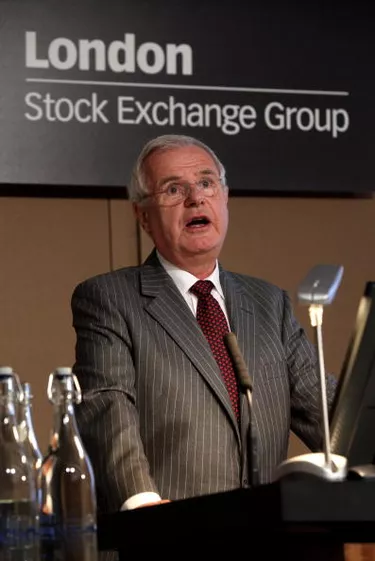
Jobbers and brokers both play a role in stock sales and purchases, but they're involved in different stages of the process. Brokers carry out transactions for the investors who hire them. Jobbers, on the other hand, exist to make sure that when brokers need to buy or sell shares for a client they have someone to buy from or sell to.
Broker
Video of the Day
A stock broker buys and sells shares on behalf of clients. Say you want 1,000 shares of stock in XYZ Corp. You place your order through a brokerage, which then acts as your agent in locating a seller and obtaining the shares. You then typically pay a commission for the broker's services. The commission may be a percentage of the price you paid for the stock, or, as is common with online and discount brokerages, it could be a flat fee per trade, regardless of the size of your order.
Video of the Day
Jobber
"Jobber" is a British term for what in the United States is commonly called a "market maker." This is someone who maintains an inventory of shares in order to make trades possible. When you place your order for 1,000 shares of XYZ Corp., your broker doesn't have to call around trying to find someone with 1,000 shares to sell. Instead, he can simply go to a market maker, who keeps an inventory of XYZ stock, and buy the shares there. Likewise, if you decide you want to sell those 1,000 shares, your broker can sell them to the market maker. Jobbers typically post two prices for a stock: what they'll buy it for and what they'll sell it for. The sell price will be slightly higher, which is how jobbers make their money.
London Stock Exchange
Generally, if you hear the terms "broker" and "jobber" used together, it's in reference to the London Stock Exchange. Over time, a custom developed on the exchange in which a firm could be either a broker or a jobber but could not be both. This "single capacity" system became a formal rule in 1909. Further, brokers in the system acted only as intermediaries between buyers and sellers; they set up trades for a commission, but they weren't actually allowed to buy and sell shares on clients' behalf. The single capacity system was eliminated in 1986 as part of sweeping financial reforms enacted by the British government. Known as the "Big Bang," the reforms allowed firms to act as both brokers and market makers.
In the U.S.
American stock exchanges never had the kind of rigid legal separation between brokers and market makers that existed in London prior to the Big Bang. A U.S. brokerage that also wants to act as a market maker may do so but must get approval from the Financial Industry Regulatory Authority, an independent body that regulates all securities firms in the United States.